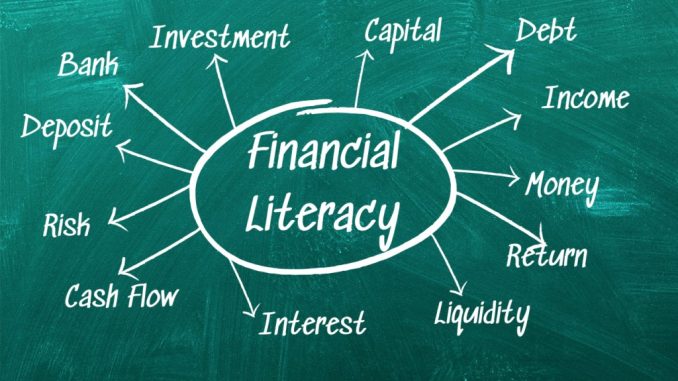
## Laying the Fiscal Foundation: The Indispensable Role of Financial Education in Schools
In an increasingly complex global economy, where financial decisions permeate nearly every aspect of daily life, the absence of robust financial education in traditional schooling stands as a glaring oversight. For too long, subjects like algebra and literature have been universally prioritized, while the practical skills of managing money, understanding debt, or investing for the future have been largely relegated to the realm of parental instruction or, more often, painful trial and error in adulthood. However, the rapidly changing financial landscape, marked by easy credit, sophisticated investment products, and global economic volatility, underscores an undeniable truth: financial literacy is no longer a luxury but an indispensable life skill. Integrating comprehensive financial education into school curricula is not just beneficial; it is a fundamental necessity for empowering the next generation to achieve economic stability and make informed, responsible choices throughout their lives.
One of the most compelling arguments for financial education in schools is its direct impact on individual well-being and future stability. Young adults, upon graduating, are immediately confronted with a myriad of financial decisions, from managing student loans and credit card applications to understanding employment contracts and budgeting for living expenses. Without foundational knowledge, they are susceptible to predatory lending practices, accumulating debilitating debt, or simply making suboptimal choices that hinder their long-term financial health. Imagine a student in Bangkok, fresh out of university, suddenly facing the complexities of navigating rent, transportation costs, and perhaps even early career investments. Without basic financial literacy, these immediate responsibilities can quickly become overwhelming, leading to stress and missed opportunities. Financial education provides the essential toolkit to navigate these initial hurdles with confidence and competence.
Beyond immediate practicalities, financial literacy fosters a proactive mindset towards long-term wealth building and security. Early exposure to concepts like compound interest, saving for retirement, and diversified investments can fundamentally alter a young person’s financial trajectory. Understanding that small, consistent savings early in life can grow into substantial sums over decades can transform frivolous spending habits into disciplined saving. For instance, if a teenager learns about the power of compound interest, they might be more inclined to save a portion of their part-time earnings rather than spending it all, setting themselves on a path toward financial independence far earlier than their parents or grandparents. This foresight is a powerful antidote to the consumerist culture that often encourages instant gratification.
Furthermore, financial education is crucial for fostering informed citizenship and a more resilient economy. As active participants in society, individuals make decisions that collectively impact local and global economies. Understanding inflation, interest rates, taxation, and the mechanics of financial markets allows citizens to engage more meaningfully with economic policy, make responsible borrowing and spending decisions, and contribute to a healthier financial ecosystem. From a broader societal perspective, a financially literate populace is less prone to economic bubbles, more resilient during downturns, and better equipped to adapt to economic shifts, contributing to overall national stability and prosperity.
The school environment offers a unique and equitable platform for delivering this critical knowledge. Unlike financial lessons learned solely within the home, school-based financial education can ensure that all students, regardless of their socioeconomic background or parental financial literacy, receive a standardized foundation. It addresses the inherent inequalities that arise when financial knowledge is passed down informally, often unevenly, through families. A child from a less affluent background, who might otherwise never encounter discussions about investing or credit scores, gains access to vital information that can significantly improve their life chances. This democratizing effect is a powerful argument for making financial literacy a core component of the curriculum.
Implementing effective financial education in schools requires more than just adding a new textbook. It necessitates engaging pedagogy that moves beyond abstract concepts to practical application. This could involve using real-world scenarios, simulations, guest speakers from financial industries, and interactive budgeting exercises. Students could learn about the difference between needs and wants by planning a hypothetical household budget, or understand the impact of interest rates by comparing different loan options for a major purchase. Integrating these lessons across subjects, such as using financial data in math classes or discussing economic history in social studies, can also reinforce learning and highlight its real-world relevance.
In conclusion, the urgency for robust financial education in schools has never been greater. In a world brimming with financial complexities and digital transactions, equipping young people with the skills to manage money, understand debt, save, and invest responsibly is an act of profound empowerment. It is about fostering individual well-being, promoting long-term financial stability, nurturing informed citizens, and building a more resilient economy. By embracing this critical subject as a core component of education, schools can move beyond traditional academics to prepare students not just for examinations, but for a lifetime of confident, informed, and successful financial decision-making, ensuring they are well-prepared for the economic realities of the 21st century.